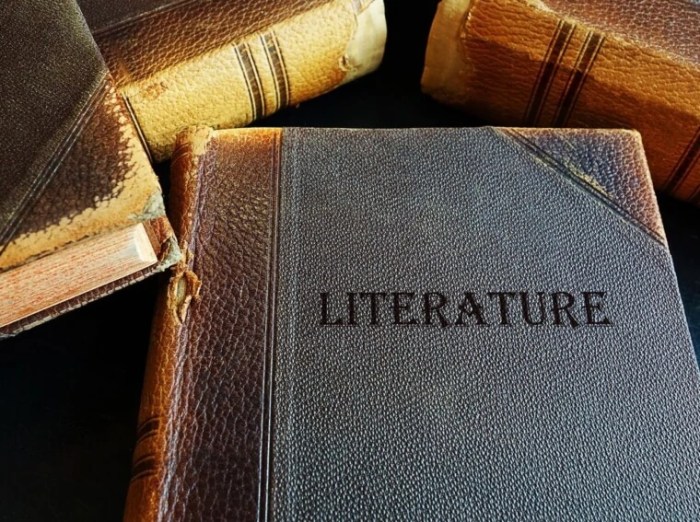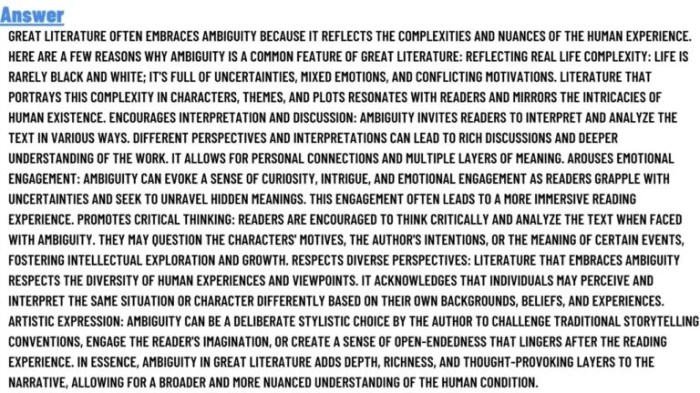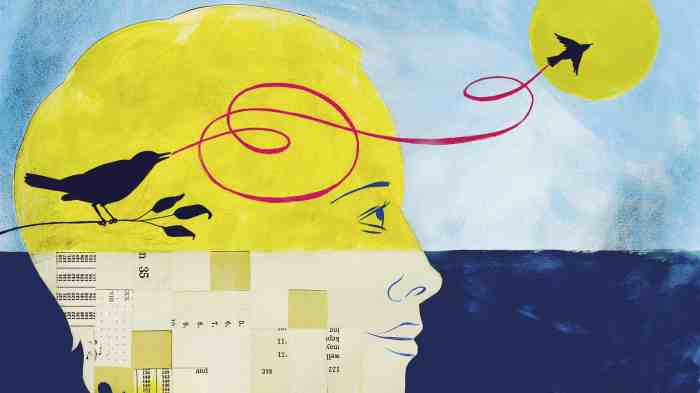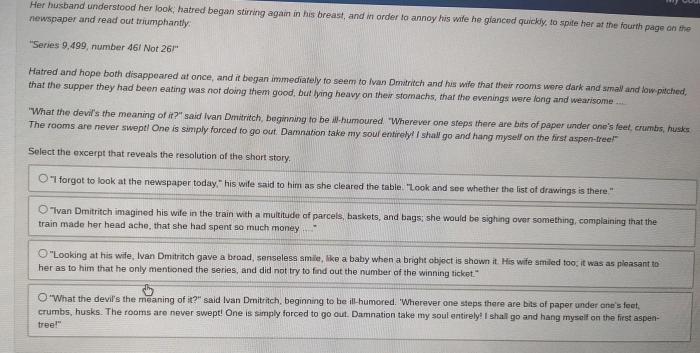It may be said that great literature embraces ambiguity because it allows for multiple interpretations and perspectives, contributing to the complexity and depth of literary characters and the exploration of universal themes. This inherent ambiguity invites readers to actively engage with the text, fostering a sense of mystery, intrigue, and intellectual stimulation.
The richness of great literature lies in its ability to transcend literal meanings and present multifaceted narratives that resonate with readers on various levels. Ambiguity provides a canvas for readers to project their own experiences and understandings, leading to a more profound and personal engagement with the work.
The Nature of Ambiguity in Great Literature: It May Be Said That Great Literature Embraces Ambiguity Because

Ambiguity, the presence of multiple possible meanings or interpretations, is an inherent characteristic of great literature. It allows for complexity, depth, and a richness of experience that engages readers on an intellectual and emotional level. From Shakespeare’s enigmatic characters to Faulkner’s stream-of-consciousness prose, ambiguity invites readers to delve deeper into the text, to question their assumptions, and to form their own unique understandings.
Ambiguity as a Tool for Character Development
Ambiguity contributes significantly to the complexity and depth of literary characters. It allows authors to create characters whose motivations, actions, and personalities are shrouded in mystery, encouraging readers to grapple with their true nature. For example, in Dostoevsky’s “Crime and Punishment,” the protagonist Raskolnikov’s psychological state and the reasons behind his actions remain ambiguous, leaving readers to contemplate the complexities of human nature.
Ambiguity and the Exploration of Themes
Ambiguity enhances the exploration of universal themes in literature. By allowing for multiple interpretations, it invites readers to engage with the text on a deeper level and to draw their own conclusions about the human condition. For instance, in Melville’s “Moby-Dick,” the elusive nature of the white whale symbolizes a range of themes, including the struggle against nature, the pursuit of knowledge, and the search for meaning in a chaotic world.
Ambiguity in Different Literary Genres, It may be said that great literature embraces ambiguity because
The use of ambiguity varies across literary genres. In fiction, it often creates suspense and intrigue, keeping readers engaged and guessing until the end. In poetry, ambiguity allows for multiple layers of meaning and interpretation, enriching the reader’s experience. In drama, ambiguity can create tension and conflict, as characters grapple with complex choices and motivations.
Ambiguity and the Reader’s Experience
Ambiguity challenges readers to grapple with the text, to form their own interpretations, and to engage with the work on a deeper level. It fosters a sense of mystery, intrigue, and intellectual stimulation, encouraging readers to actively participate in the creation of meaning.
By embracing ambiguity, great literature invites readers to become co-creators, enriching their own understanding and appreciation of the text.
Detailed FAQs
How does ambiguity contribute to character development in literature?
Ambiguity allows for characters to be portrayed with complex motivations and actions, making them more relatable and multifaceted. Readers can connect with characters on a deeper level as they grapple with the uncertainties and contradictions within them.
In what ways does ambiguity enhance the exploration of themes in literature?
Ambiguity allows writers to delve into universal themes such as identity, morality, and the human condition in a nuanced and thought-provoking manner. It encourages readers to draw their own conclusions and actively engage with the text, leading to a richer understanding of the work’s message.
How does ambiguity influence the reader’s experience of literature?
Ambiguity challenges readers to actively participate in the interpretation of the text. It fosters a sense of mystery and intrigue, stimulating intellectual curiosity and encouraging readers to form their own unique perspectives on the work.


